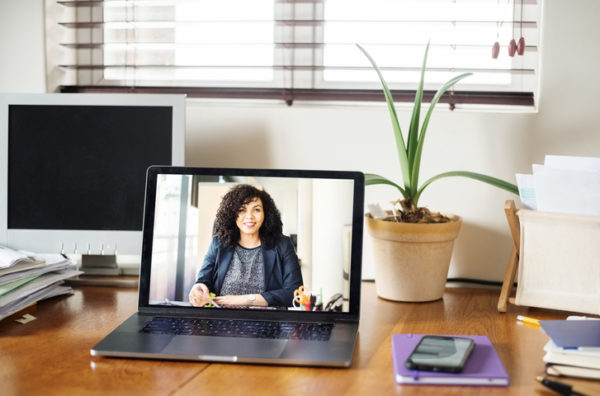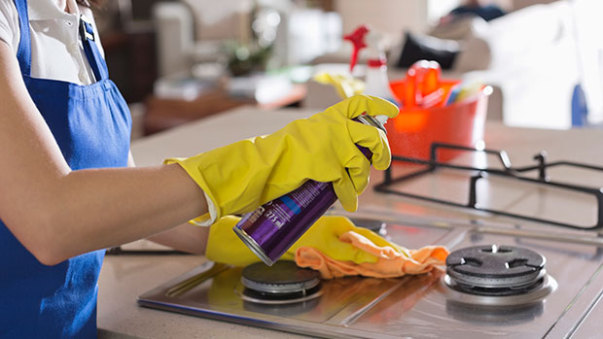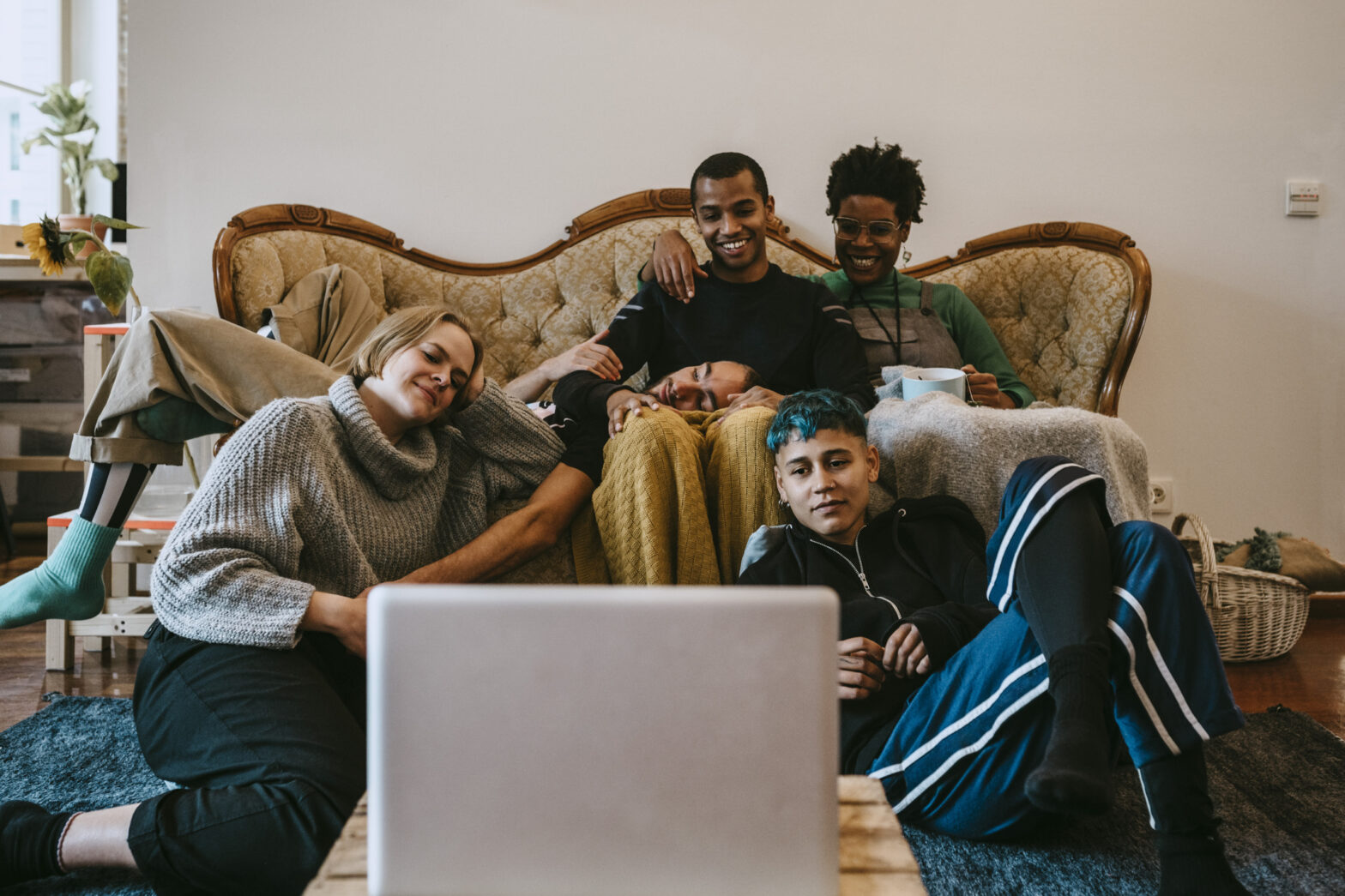Congratulations! You just landed a job interview. That’s no easy feat during these trying times amid the COVID-19 pandemic. Chances are your big interview will be a virtual one in an effort to keep you and your potential new employer healthy.
A virtual job interview should be taken just as seriously as an in-person one. In fact, your virtual interview conduct could be just as big of a factor in your hiring as your ability to answer the interviewer’s questions.
With that in mind, let’s make sure you’re the top choice of every company you interview with. Here are five tips on how to ace your virtual job interview.
Make Sure Your Technology Works
Don’t derail your virtual job interview before it begins with faulty equipment—especially if the job you’re going for requires any level of technological competence. It’s not a good look if you can’t manage your own tech—how will you ever handle the employer’s? Plus, employers are busy—likely with other interviews. You don’t want to waste their time while you’re troubleshooting to get the video call back on track.
Give all of your equipment a test run before your virtual job interview. This includes checking your home Internet connection, testing your speakers and microphone to ensure all parties can hear each other clearly and making sure your camera works. Ask a friend or family member if they’d be willing to do a video chat with you to see if all of your equipment is working well.
Create A Presentable Work Area
Good organizational skills are often high on employers’ priority list when they are hiring someone. You can show yours off by tidying up any area that your computer camera will catch. If you’re in your home office and there are shelves behind you, make sure all of the contents are organized. If you have to do the interview from a more personal space like your living room, kitchen or bedroom, move any unnecessary items out of sight. If an employer can see piles of papers or even worse, clothes or dishes behind you, it’s going to be difficult to convince them you’ll be organized when it comes to your work.
 Dress For Success
Dress For Success
Remember, a virtual job interview is no less professional than a face-to-face one. You should dress just as professionally as you would if you were going to an employer’s office—at least from the waist up. Business casual is the minimum you should aim for, but going business professional would clearly say to the employer you are serious about the position.
You’ll look more professional when you dress up for your virtual job interview, but you might also feel more confident. Also be sure to avoid wearing any flashy patterns or accessories, or anything else that might be distracting. You want the focus to be on you from an interview standpoint rather than your attire.
Engage With The Interviewer
When it comes to forming a rapport with someone, it’s usually easier to do so in person than over a videoconference. Even so, it’s important that you try to create the same bond on a virtual job interview. Be as personable as you can when answering questions and don’t be afraid to smile or laugh—it’s OK to let your professional personality shine through!
Also, be mindful of when your interviewer is talking and try not to talk over or interrupt them. Sometimes tech causes a lag in videoconferences, which leads to both parties speaking the same time. If this happens, defer to the interviewer. Don’t hesitate to ask the interviewer to clarify if you don’t understand a question. It’s better to answer a question that you know you understand correctly, than to answer a question you think you understand incorrectly. The latter might make your interviewer think you’re not paying attention.
Do Your Homework

You never want to go into a job interview, virtual, in-person or otherwise, “cold.” In other words, not knowing anything about the company you’re interviewing with or the position you applied for. Study up on both so you can ask insightful questions during the interview. Look at some of the responsibilities that would come with the job you’re striving for and explain how your past experience would make you an ideal fit for the role. This type of preparation will show employers that you’re not only serious about the role, but also that you could excel in it.
Your preparation should also include being ready for some of the standard interview questions. These include:
- Why are you looking for a new job?
- What are your salary requirements?
- What are your weaknesses?
- Why should we hire you?
Having answers ready for these questions will decrease the chances of you (visibly) squirming in your chair as you think of your response.
Bonus Tip: Don’t Forget To Follow Up
Send a “thank you” email to your interviewer by the end of the day of your call, just as you would after an in-person interview. Personalize the message by including something you discussed during the conversation. This is also a good time to ask any questions about the position or the company’s hiring process that you may have forgotten about during the interview.
Virtual interviews could become more commonplace as more companies adjust their work-from-home policies amid the COVID-19 pandemic. Combine these tips with your in-person interview skills and you’ll likely have no trouble acing any virtual job interviews you have going forward.
GEICO is hiring! Check out job opportunities on the GEICO Careers page or our Twitter, Instagram and Facebook pages.
By Joe Dyton









Kathleen Kelly says,
Thanks for the guidance, including updated information related to recent changes related to covid19 considerations.
Jean D. Greer says,
I am so glad to see an article about the things you need to do before, during and after an interview. I am the Foodservice Director at a healthcare facility and often conduct interviews with job applicants. I turn down applicants for the way they dress and conduct themselves many times. You do not go to an interview without a clean body and clean appropriate clothing and you have a positive attitude about the questions that you are asked.
You also go to the interview by yourself, no children or friends should tag along with you. In my 20 years of doing this job, I have seen a lot of strange people, so I was very pleased that someone has taken the time to write something about how important it is to prepare for an interview. MANY jobs are lost for the reasons I have just listed.
Jennifer Pihl says,
After 25 years in the healthcare business I have seen so much. I needed to hire someone and had to include “must not have 15 diseases in one months time” I received so many calls, not from applicants but from other medical offices. The applicant I did hire after 2 interviews ended up not showing to work.
I don’t understand applying for a job and then not wanting to work.
Kathleen Kelly says,
Amen on that, Ms Greer! As a consultant dietitian for 3+ decades, I’ve seen my share of scenarios also. The most memorable and perhaps unsettling of all was an individual interviewing for the position you currently hold. She wasn’t a US citizen, but entered our country under the guidelines of political asylum. I wanted so badly to recommend her for the position, but she made many contradictory statements that, in addition to lacking a verifiable background in food service management, I couldn’t validate her reported immigration status. Regardless, the experience has stayed with me for more than 20 years.
Even more astounding was the unwavering enthusiasm demonstrated by the administrator of the nursing home seeking to fill the position! One would think that those charged with protecting our most vulnerable individuals would show more diligence and scrutiny in selecting honest and experienced members of a management team. Instead, he sought “any warm body” that might prevent early morning calls inadequate staffing for this vitally important position.
It is no wonder that the Federal Statutes are as restrictive as they are. Allegedly, only nuclear power plants are inspected and monitored more cautiously by law. Since I refuse to do business with organizations that lack genuine interest in preserving the lives and dignity of our elders, this situation left him with TWO important positions to fill.